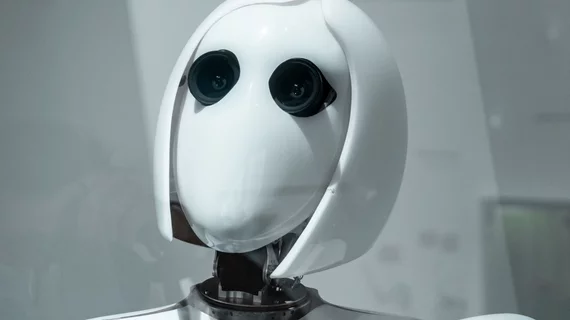Industry Watcher’s Digest
Buzzworthy developments of the past few days.
- Things have moved fast with OpenAI’s ChatGPT over the past seven and a half months. How fast? Consider some then-and-now headlines at TechCrunch+.
- Dec. 1, 2022: “While anticipation builds for GPT-4, OpenAI quietly releases GPT-3.5”
- March 29, 2023: “1,100+ tech leaders sign open letter calling on ‘all AI labs to immediately pause for at least 6 months the training of AI systems more powerful than ChatGPT-4’”
- July 6, 2023: “OpenAI makes GPT-4 generally available”
- To fill in the gaps between those three, click here.
- To fill in the gaps between those three, click here.
- Nurses convey empathy, often nonverbally, and negotiate give-and-take communications with their patients. Could an AI-powered robot pull that off? Probably not. But serious researchers are seriously probing the possibilities—if for nothing else than to test the boundaries of robotic nurses’ clinical capabilities. At Tokyo University of Science, medical ethicists, nursing researchers and other scholars have written a peer-reviewed paper tackling the subject head-on.
- Don’t show the above bullet item to robot nurse Grace. She participated in a United Nations AI summit last week. The U.K. news outlet The Independent has posted a video of one session. In it, Grace balks when asked a question at about the 1:16:30 mark before more or less getting it together about a minute and a half later. Grace’s social stumble may offer some relief to wary attendees in the live audience. For my money she ventures unnervingly close to the uncanny valley. Check it out.
- A French medtech has raised $14 million to advance its AI-powered fetal ultrasound technology. The company, Sonio, tells AIin.Healthcare that it’s developed the first software-as-a-service, or SaaS, that’s agnostic, interoperable and capable of supplying image quality control and detecting potential anomalies using AI.
- An engineer of multiple specialties (bio, electrical, computer) has received two NIH grants totaling around $4 million to study AI for mental healthcare. Principal investigator Yu Zhang, PhD, of Lehigh University in Pennsylvania says the goal is to “build objective biomarkers using brain imaging and machine learning that better capture the brain’s dysfunction.” University news item here.
- Washington, D.C.-based Children’s National Hospital is working with Virginia Tech to leverage AI for solving childhood cancer and other pediatric diseases. At a meeting hosted by the two last week, an invited executive from Pfizer encouraged attendees: “It’s hard to think of a more compelling subject than using AI to advance children’s health.” Virginia Tech news coverage here.
- Is this the first of many legal actions to come? The edgy comic Sarah Silverman is suing OpenAI and Meta on allegations they illegally scraped her material to train their algorithms. You don’t have to look far to find coverage. It’s practically everywhere.

